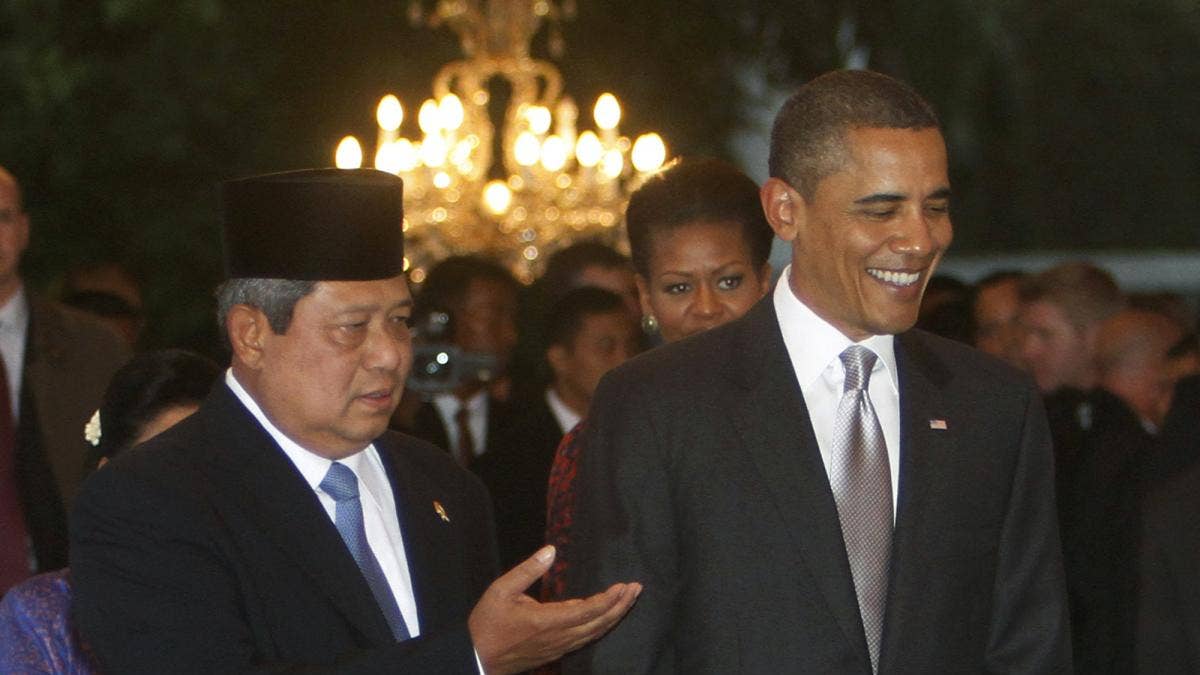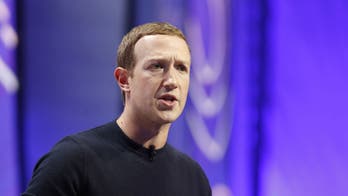
President Obama in Indonesia/AP
In the book "Around the World in 80 Days" Phileas Fogg circles the globe, making it back to London in time to win a bet that the feat cannot be completed. President Obama may not have been betting he could get around the world in 10 days, but that's just what he did, wrapping up a packed expedition that took him on a tour to deal with economic issues, foreign affairs and even a short trip down memory lane.
The foreign trip, which began Friday, Nov 5 just 3 days after a bruising defeat for the democratic party in the mid-term elections was a welcome change for the president. His time in India gave him a chance to focus on economic issues and the growing disillusionment in America with foreign call centers. And the president fielded some tough questions from a town-hall meeting with students in Mumbai, India. A student asked the president why his administration refuses to recognize Pakistan as a terrorist state. It's an especially touchy subject in India, where there's a history of strife between the two nations made even more strained when terrorists who attacked Mumbai in 2008 entered India via Pakistan.
"I will tell you that I think the Pakistani government understands now the potential threat that exists within their own borders. There are more Pakistanis who've been killed by terrorists inside Pakistan than probably anywhere else, Obama said. "I think there is a growing recognition -- but it's something that doesn't happen overnight -- of what a profound problem this is. And so our feeling has been to be honest and forthright with Pakistan, to say we are your friend, this is a problem and we will help you, but the problem has to be addressed."And while the president was mostly warmly received at every stop, the tangible wins from this trip were hard to pinpoint.
In South Korea, Obama and South Korean President Lee failed to finish a Free Trade Agreement that has been at a standstill for a number of years over beef and auto imports, with both leaders saying they wanted to continue pushing for a few more weeks before announcing anything.
"The whole issue here from my perspective, and has always been over the last couple of years, is do we have a deal that works for us? That's my first obligation. President Lee's obligation obviously is to make sure it works for Korea. I think we can get a win-win, but it was important to take the extra time so that I am assured that it is a win for American workers and American companies as well as for Korean workers and Korean companies, because I'm the one who's going to have to go to Congress and sell it," Obama said at a press conference in Seoul on Thursday. "And from my perspective, again, I'm not interested in a announcement but then an agreement that doesn't produce for us."
There was also little to no movement on the issue of Chinese currency, despite some strong language from the president."The issue of the RMB is one that is an irritant not just to the United States, but is an irritant to a lot of China's trading partners and those who are competing with China to sell goods around the world. It is undervalued. And China spends enormous amounts of money intervening in the market to keep it undervalued," Obama said Thursday. "And so what we've said is it's important for China in a gradual fashion to transition to a market-based system. Now, this is something that China has done in the past. And China has also acknowledged that it needs to transition to a more balanced growth strategy internally where they're focusing on their enormous domestic market and giving their people the opportunity to buy goods and services and consume -- all of which will promote their growth, but also will reduce some of the imbalances around the world."
The issue of currency is something that is almost certain to come up again soon, as republicans in Congress look towards tackling that in addition to other trade issues on their agenda.
"The Republican House leadership has said, thankfully, they will change the currency-obsessed agenda of the last Congress to a more comprehensive agenda," said Derek Scissors of the Heritage Foundation. "Getting the RMB to rise against the dollar, though, is just an attempt to reduce our trade deficit. What we should be doing is cutting the federal budget deficit, which will boost national saving and reduce our trade imbalance. What China should be doing is cutting subsidies to state-owned enterprises, which will boost market access for imports."
But for as many issues the president failed to resolve, he certainly appeared to be enjoying himself.
In India, the first couple visited Mani Bhavan, where Ghandi lived in Mumbai and they laid a wreath at Raj Ghat in New Delhi where the legendary man is buried. They even danced with children during a Diwali celebration. And the president managed to take a trip down memory lane with a visit to Jakarta Indonesia, where he lived for four years as a child with his mother.
A visit to the largest mosque in South East Asia, still being built when Obama left the country at the age of 10 was one highlight of his 23 hours on the ground - unexpectedly truncated due to Mount Merapi's eruptions and the threatening ash cloud that would have stopped the president from continuing his trip.
And it was in Indonesia where the president's face broke into a smile when he said how much the city of Jakarta had changed since he left, but recalled with fondness his time spent in the country.
"Indonesia bagian dari didi saya (Indonesia is a part of me)," Obama said at the University of Indonesia in Bahasa, the native language of Indonesia. "We lived in a small house. We had a mango tree out front. And I learned to love Indonesia while flying kites and running along the paddy fields and catching dragonflies, buying satay and baso from the street vendors. I still remember the call of the vendors. Satay! I remember that. Baso! But most of all, I remember the people -- the old men and women who welcomed us with smiles; the children who made a foreign child feel like a neighbor and a friend; and the teachers who helped me learn about this country."
The president departs his last stop on his "around the world tour", Yokohama, Japan early Sunday morning. He's headed back to a number of domestic issues and problems leaving behind foreign policy for a new reality, a republican majority in Congress.




